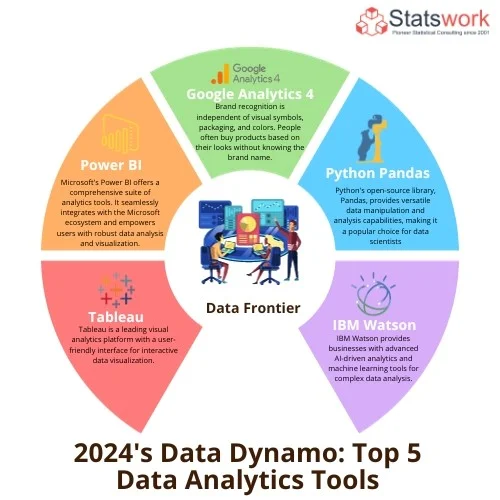Gain One-upmanship Through Effective Analytics Deployment
Gain One-upmanship Through Effective Analytics Deployment
Blog Article
Make Best Use Of Development: Just How Analytics Drive Better Approaches
By harnessing data understandings, businesses can refine their operational approaches, expect market changes, and improve customer interaction. The obstacle lies not just in accumulating information yet in effectively interpreting it to drive concrete end results.
Recognizing Information Analytics
Data analytics is a methodical computational evaluation of data that allows companies to discover significant patterns and understandings. This process encompasses a range of methods, including statistical analysis, anticipating modeling, and data mining, which jointly intend to transform raw data right into actionable information - Analytics. By employing these methods, organizations can make educated choices that are rooted in empirical proof as opposed to intuition alone
The foundation of information analytics hinges on its ability to take care of substantial amounts of info from diverse sources. This includes structured data, such as databases, and unstructured information, including social networks interactions and customer feedback. Through using specialized software and tools, experts can extract and process this data successfully, recognizing patterns and correlations that might not be right away noticeable.
Recognizing information analytics additionally includes identifying the significance of information high quality and stability. Reliable and accurate data is vital for purposeful evaluation; thus, organizations should apply durable data governance methods. Moreover, the iterative nature of analytics enables continual refinement and enhancement of techniques, guaranteeing that companies remain nimble despite transforming market characteristics and consumer actions.
Key Benefits of Analytics

Among the crucial advantages of analytics is its capacity to supply actionable insights. Organizations can quickly examine vast amounts of data, discovering patterns that might not be quickly evident. This aids in anticipating market changes and adjusting strategies accordingly. In addition, analytics cultivates a culture of evidence-based decision-making, decreasing dependence on instinct and guesswork.
Another considerable advantage is enhanced client understanding. Analytics tools enable organizations to segment their target market, track customer actions, and individualize advertising efforts. This targeted technique not only boosts customer interaction however also drives greater conversion prices.

Implementing Analytics Techniques
To completely understand the advantages of analytics, companies have to take on structured methods for execution. This starts with clearly specifying purposes that align with wider company objectives. By establishing specific, measurable end results, companies can focus their analytics initiatives on locations that produce the greatest return on investment.
Next, organizations must focus on data governance to make certain the honesty and protection of the information being evaluated. This includes establishing procedures for information collection, storage space, and gain access to while adhering to appropriate guidelines. Making certain high-grade information is vital for producing significant understandings.
Moreover, promoting a society of data-driven decision-making is essential. This needs training workers to translate analytics findings and motivating partnership across departments. They are a lot more likely to integrate insights into their daily operations. when groups understand the value of analytics.
Last but not least, organizations ought to regularly review and refine their analytics techniques. The landscape of information and modern technology is consistently progressing, and remaining adaptable will allow organizations to leverage new tools and techniques properly. By applying these organized approaches, organizations can optimize the effect try here of their analytics initiatives and drive sustainable development.
Devices for Effective Evaluation
Effective evaluation relies upon a range of devices that promote the removal of insights from information - Analytics. These devices can range from simple spreadsheet applications to innovative maker learning platforms, each offering an unique objective in the logical process
Data visualization software, such as Tableau and Power BI, plays a vital function in changing intricate datasets right into reasonable graphical depictions. These devices enable analysts to determine trends and patterns swiftly, allowing for even more enlightened decision-making.
Analytical evaluation software, like R and SAS, supplies advanced capacities for conducting extensive evaluations, consisting of regression, theory screening, and predictive modeling - Analytics. These features empower companies redirected here to draw significant verdicts from their information, identifying possible possibilities and threats
In addition, database monitoring systems such as SQL and NoSQL data sources supply the essential infrastructure for saving and inquiring large quantities of data effectively. They guarantee that information is arranged and accessible for analysis.
Finally, service knowledge platforms incorporate numerous data resources, giving a thorough sight of business performance. By utilizing these tools properly, organizations can enhance their analytical capacities, allowing them to develop strategies that make the most of development and boost total performance.
Study of Success
Successful companies frequently leverage information analytics to drive impactful strategies, as confirmed by several noteworthy case studies. By utilizing these insights, Netflix has successfully customized its material suggestions, resulting in boosted user interaction and client retention.

Additionally, Starbucks utilizes data analytics to establish optimum shop locations and fine-tune its product offerings. By checking out consumer demographics and acquiring patterns, Starbucks efficiently determines high-potential markets and tailors its menu to regional tastes, driving sales and consumer loyalty.
These instance studies illustrate that reliable application of data analytics can lead to calculated advantages, promoting development and growth within organizations across different sectors.
Verdict
In verdict, the integration of analytics right into business techniques substantially enhances decision-making procedures and fosters lasting growth. The effective application of analytics tools additionally supports dexterity and development, making it possible for companies to browse competitive landscapes with better precision.
Information analytics is an organized computational analysis of data that makes it possible for companies to uncover meaningful patterns and understandings.Understanding information analytics also involves identifying the significance of data top quality and stability. Accurate and trusted data is crucial for significant evaluation; therefore, companies should carry out robust information governance methods.Following, organizations ought to prioritize information administration to ensure the integrity and protection of the information being evaluated.Effective organizations often utilize data analytics to drive impactful strategies, as confirmed by a number of noteworthy situation research studies.
Report this page